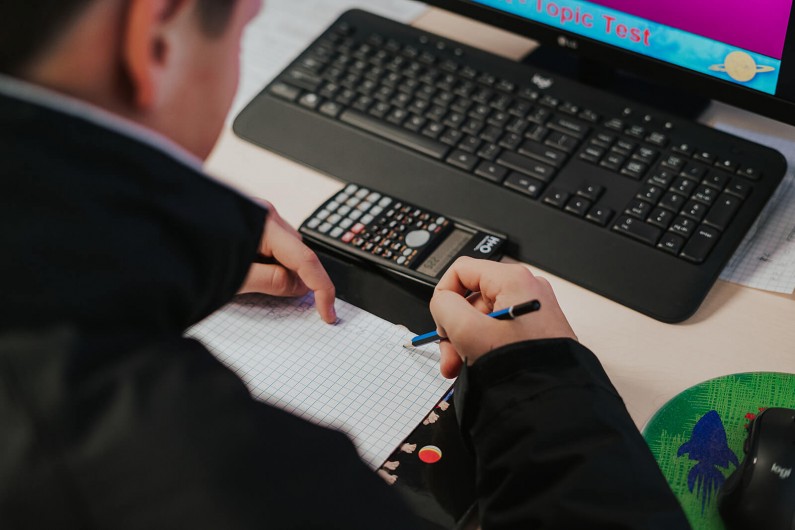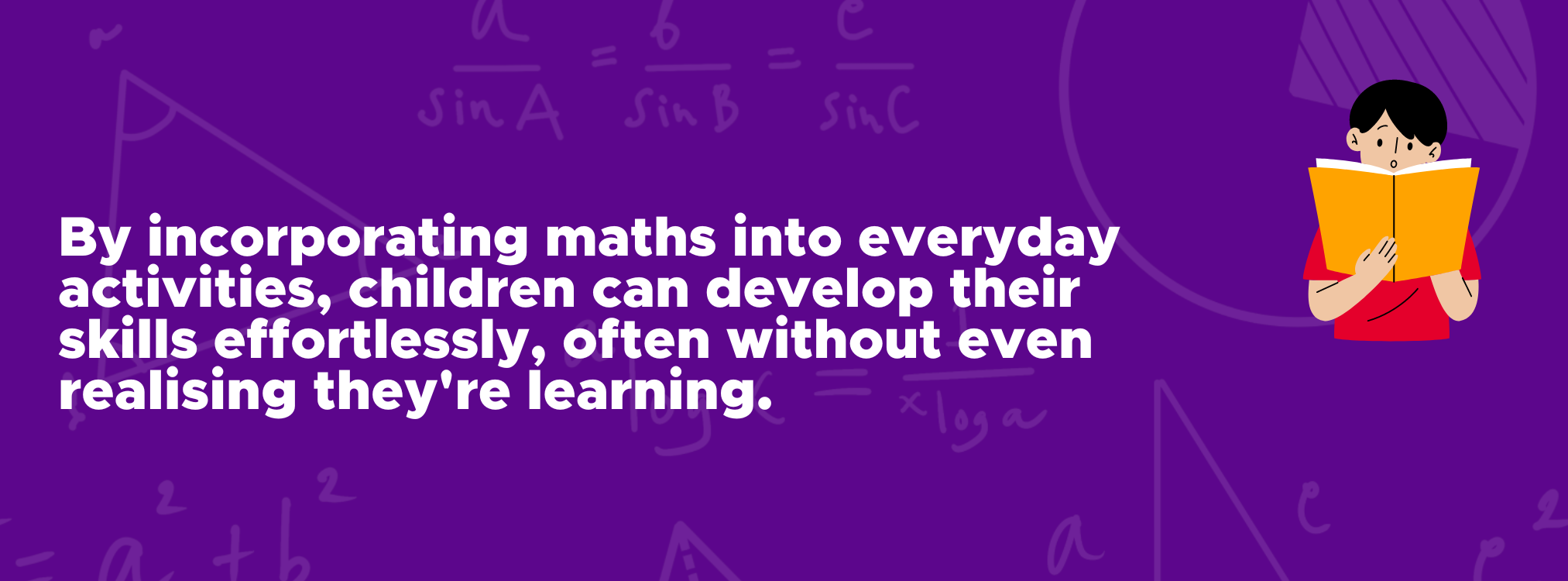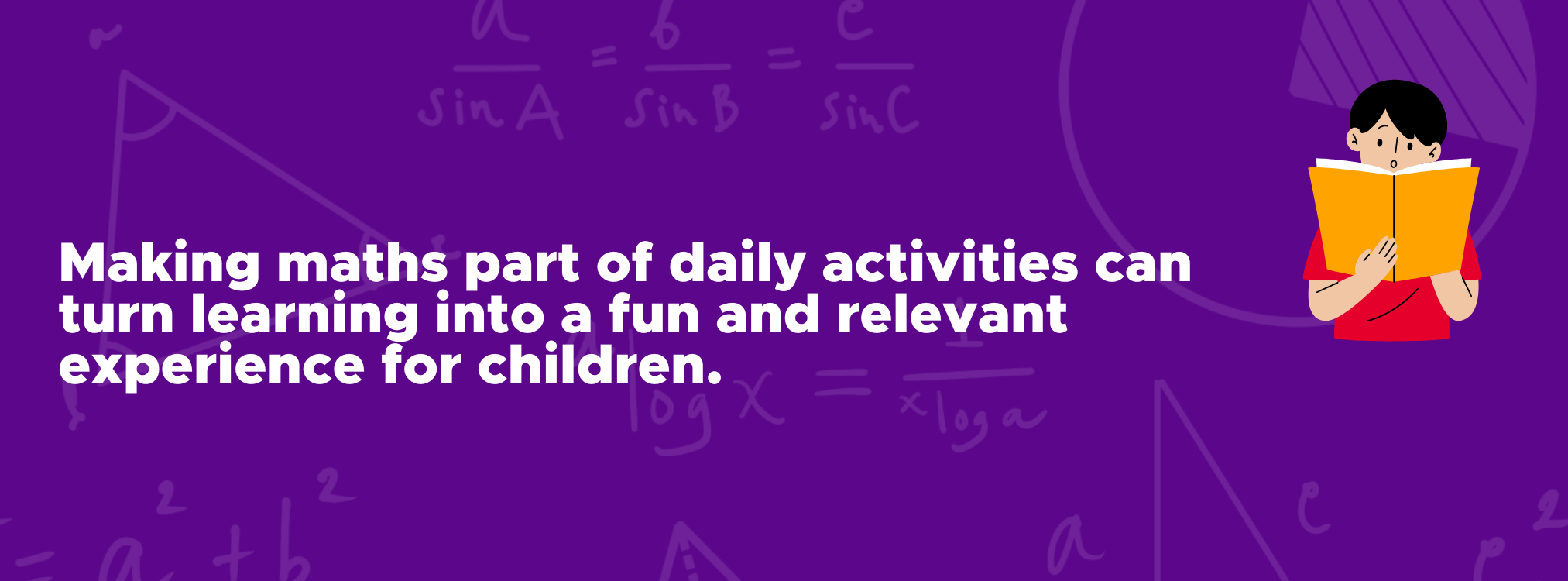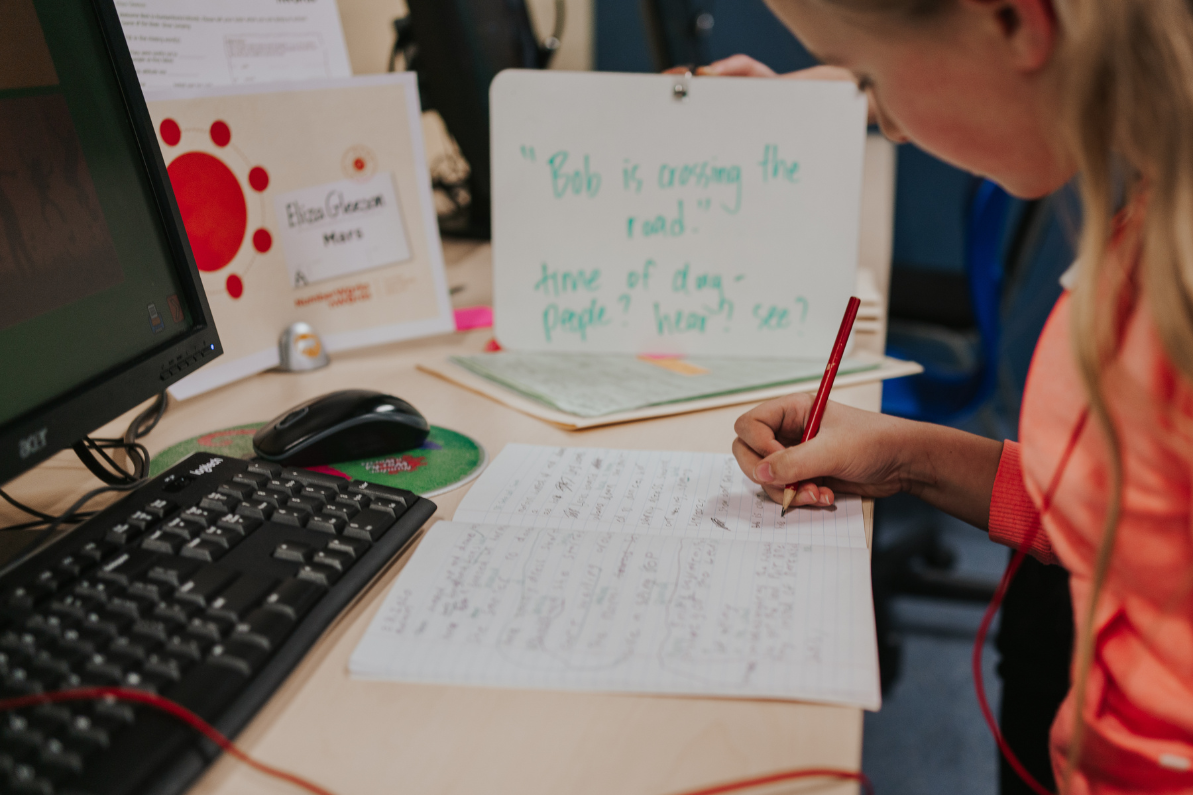Engaging Ways to Practise Maths Every Day

Mathematics surrounds us and plays a vital role in our daily lives. However, it's not uncommon for children to find maths either intimidating or dull. To shift this perspective, it's essential to integrate maths into their daily routines in a way that's both natural and enjoyable. By incorporating maths into everyday activities, children can develop their skills effortlessly, often without even realising they're learning. Here are some simple and fun strategies to transform routine tasks into opportunities for maths practice.

Incorporating Maths into Your Child’s Morning Routine
One of the easiest ways to sneak some maths into daily life is through breakfast, making it a fun part of a child's learning. Children can start by counting how many slices of toast they want or how much milk to pour with their cereal. This simple counting exercise also introduces addition when they figure out how many slices are needed for everyone.
And don’t forget the toaster timer! Children can get involved in setting the timer based on how crispy they like their toast. This helps them understand time intervals, making time management a practical skill and knowledge they can use in everyday life.
Calculating Travel Time
Another great maths activity for children is figuring out how long it takes to get from home to school in the morning. Children can track the time it takes each day and compare their estimates with the actual time. This not only helps with time management but also introduces them to estimation and subtraction. Plus, it’s a fantastic way to warm up their brains for a day of thinking at school.
To make it even more interactive, they can use a timer or stopwatch to measure their journey. They could also create a simple graph to see if their travel time changes due to traffic or different routes. This hands-on approach makes abstract concepts much more relatable.
Packing the School Bag
Packing a school bag is a perfect opportunity for maths practice, especially in preparation for the day at school. Children can count how many books and other items they need to take for class. They can also practice addition and subtraction by figuring out how many items fit into their bag and how many are left out.
To add a bit of problem-solving, challenge them to pack their bag in a way that maximises space. They’ll learn not only about counting but also about spatial awareness and geometry as they try to fit everything in without overstuffing.
Counting Steps to the Classroom
Turning the walk from the car to the classroom into a maths activity can be both fun and educational. Children can count the number of steps it takes to reach their classroom, with teachers encouraging them to engage in this fun activity. This helps with counting practice and these learning activities can introduce concepts of measurement and distance, showcasing other representations of mathematical skills.
To make it a bit more competitive, they can compare their step count with their friends or track different routes to see which is the shortest. Using a pedometer or fitness tracker can make this activity even more engaging.
Storybook Reading for Children
Reading storybooks at bedtime is another excellent opportunity to have parents sneak in some maths practice. As you read together, count how many stories you can get through before it is time to go to sleep. This can be a fun way to practice counting while creating a calming bedtime routine.
Additionally, if the storybook features special characters or animals, have children count how many times these characters or animals appear throughout the story. You can also apply this to specific words, for example, ask your child to track how many times a particular word or character’s name is mentioned, either throughout the book or on each page. This activity not only reinforces counting skills but also encourages observation and attention to detail.
Budgeting for School Lunches and Other Expenses
For slightly older children, learning to manage their own finances can be a valuable lesson in mathematics. Give them a set amount of money for school lunches and let them budget it wisely. They will practise addition and subtraction as they decide how much to spend on different items and how much to save for later.
They can also work out whether they have enough money to take the bus home or buy a treat from the shops on their way. This teaches them about financial decisions, budgeting, and the value of money. Tracking their spending over the first half of the week helps them see how their budgeting skills improve and this example underscores the importance of saving and planning.
Earning Pocket Money Through Chores
Linking household chores to pocket money is a fantastic way to teach children practical maths skills. Assign a specific amount of money to each child for each chore so they can understand how earning works, alongside other practical skills. This not only helps them manage their earnings but also teaches them to save for things they would like.
Children can use their pocket money to save up for a special item, like a new toy or game to play together. Setting savings goals and tracking progress helps them learn about delayed gratification and budgeting. Discussing the costs of various items and comparing them to their savings gives them a better understanding of financial planning and prioritising expenses.

Conclusion
Making maths part of daily activities can turn learning into a fun and relevant experience for children. By integrating maths into tasks like counting breakfast slices, measuring travel times, packing school bags, counting steps, timing homework, measuring shower duration, managing money for school lunches, and earning pocket money through chores, children can build their maths skills in a way that feels natural and engaging.
These examples of everyday activities not only help children practise essential maths concepts but also make learning a part of their routine. By turning daily tasks into opportunities for mathematical exploration, children can develop a strong foundation in maths that will serve them well throughout their lives.
At NumberWorks’nWords, we know that practice is essential, and integrating maths into your child's daily routine can make a big difference. If you're a parent looking for extra support to enhance your child's confidence and academic performance in maths, our team is ready to assist. Reach out to us today to schedule a free, no-obligation learning assessment.



